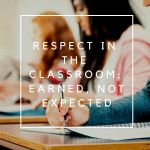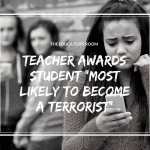 This time of year is filled with so many conflicting feelings for teachers. I remember my time in the classroom as I faced June: elation, anxiousness, constant review of what needed to get done, finalizing grades and projects, planning for next year, thinking about the summer… The end of the school year is a huge relief for students and teachers as they leave the classroom for a 2 month break. No such milestone exists for an unschooling child – a student who learns outside the traditional school system works on a different calendar: one that is year-round. I’ve written previously about how my son and I have begun the adventure of unschooling, and about how we integrate technology and gaming into his learning process. This will be our second summer of unschooling, and in reality, the summer looks no different from the rest of the year. John Holt, one of the more prolific writers about unschooling describes the process as:
This time of year is filled with so many conflicting feelings for teachers. I remember my time in the classroom as I faced June: elation, anxiousness, constant review of what needed to get done, finalizing grades and projects, planning for next year, thinking about the summer… The end of the school year is a huge relief for students and teachers as they leave the classroom for a 2 month break. No such milestone exists for an unschooling child – a student who learns outside the traditional school system works on a different calendar: one that is year-round. I’ve written previously about how my son and I have begun the adventure of unschooling, and about how we integrate technology and gaming into his learning process. This will be our second summer of unschooling, and in reality, the summer looks no different from the rest of the year. John Holt, one of the more prolific writers about unschooling describes the process as:
Interest driven, child-led, natural, organic, eclectic, or self-directed learning. Lately, the term “unschooling” has come to be associated with the type of homeschooling that doesn’t use a fixed curriculum. When pressed, I define unschooling as allowing children as much freedom to learn in the world, as their parents can comfortably bear.
Allowing my son that freedom has been the most challenging thing I have done since becoming an educator. I was trained to believe, and I still do to some extent, that education is process that helps a child learn the skills, knowledge, and character required to understand the various subjects that have been deemed important for them to know at certain ages. But the system that most teachers must operate within has maintained an industrial, factory model of feeding those subjects to children in an order determined by nothing other than their age. That is the factor that determines what grade they should be in, and what they should know. But we all know that children of the same age can vary drastically in what they know, what they are interested in, and what their skills are. But for 10 months of the year, we insist that our children proceed through this model and learn what has been determined they should know – not based on where the child is or what the child is interested in, but on when they were born. No wonder summer break is so looked forward to by children and teachers. Unschooling has been a revelation for me as a teacher and a mother. I was lucky enough to have guidance from democratic school educators who helped me to understand the process of “de-schooling” and allowing my son to begin to find his own way. But I still treated it like it should have elements of regular school – I bought books on what he should know for what would have been his grade level, I worked out a subject schedule, I planned lessons for him. That was much more a traditional homeschool model. But that was not the true nature of unschooling; it lacked the main component necessary to unschool: freedom. Non-coercive education is a difficult concept to learn because education itself is simply accepted as a coercive model in our society. And it has become necessary because we do not make it a national priority to put enough funding into education to allow for a universal free model of education that is not a coercive, factory process. As I slowly began to let go and allow my son to take the reins of his own learning, I saw a transformation take place. It was uncomfortable for me at first to feel the pressure that he would not know what he was “supposed” to know by the end of 6th grade. But then I realized he had learned so many other things that first year that he would not have learned until much later grades (or not at all for subjects not even taught in middle school, like computer programming). This spring if he had stayed in traditional school, my son would be completing 7th grade. But instead, he is not completing anything – learning has become a process that does not belong to specific times of the day, days of the week, or months of the year. No, he does not spend 7 hours working on academic work a day. He gets to play on days other than Saturday and Sunday. He works on a project for 4 days straight and then get back to other stuff when he’s done. He picks up a new subject or topic as soon as he’s interested in it, even when it’s 7 o’clock at night or 3 o’clock on Saturday. And because his learning process has become unconfined to a traditional schedule, he won’t be taking a summer break. But he doesn’t need one – learning has become something he simply does because he wants to. And the more he learns, the more he’s wanted to learn. He has gained what traditional school could not give him: an internal locus of control. That means he believes he is responsible for his own learning and for his own successes and failures. It something he never felt when he did not have the freedom to explore and learn in his own time and space. And because of it, his summertime will simply be an extension of his regular, daily life. This year, that means he will continue to learn, among other things, programming language, robotics, some geometry, and anything else that happens to pop up. Summertime is a needed break for the kids and teachers in the education system. For unschooling kids, no break is needed because learning and education aren’t about a schedule or a calendar – it’s simply a way of living. But that doesn’t mean that the summer sun and the poolside won’t beckon us just the same!





